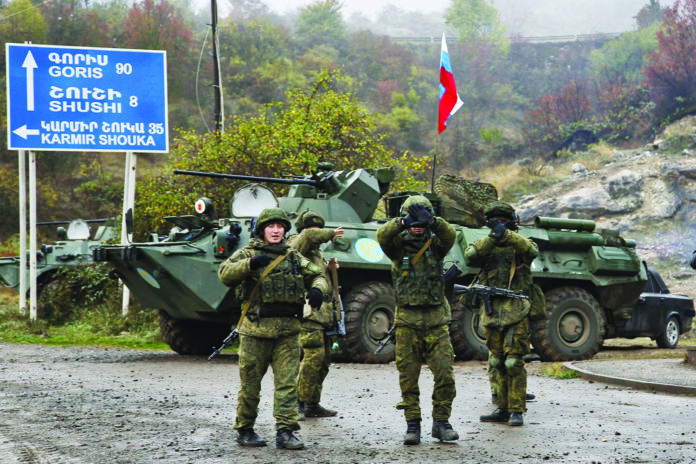By Naira Nalbandian
YEREVAN (Azatutyun) — An Armenian pro-government lawmaker has denied any major differences between Yerevan and Moscow over the activities of Russian peacekeepers in Nagorno-Karabakh after last week’s deadly fighting in the disputed region.
Vigen Khachatryan, a member of the ruling Civil Contract faction, said on Monday, August 8, that the situation is far from being described as “tensions” or “differences,” but rather it is a result of a lack of understanding.
Following clashes between Armenian and Azerbaijani forces along the Lachin corridor near Nagorno-Karabakh early last week that reportedly left two Armenian and one Azerbaijani soldier dead, Armenian Prime Minister Nikol Pashinyan called for “adjusting details” of the Russian peacekeeping operation in the region. He, in particular, suggested giving the Russian contingent a “broader international mandate.”
“If we see that solutions are not possible in a trilateral [Russian-Armenian-Azerbaijani] format, we will have to think about activating additional international mechanisms,” Pashinyan warned on Thursday without elaborating.
Moscow effectively dismissed Armenian criticism as Russian Foreign Minister Sergei Lavrov said the following day that they had not received any concrete proposals which the Armenian prime minister wants to discuss in the context of the Russian peacekeeping operation in Nagorno-Karabakh.








